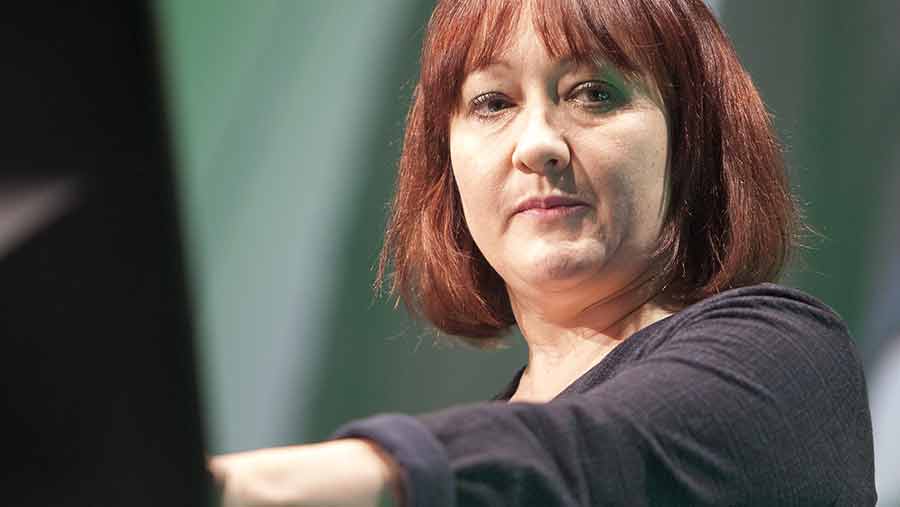Kerry McCarthy calls for clampdown on antibiotics
 Kerry McCarthy © Jonathan Page
Kerry McCarthy © Jonathan Page Shadow Defra secretary Kerry McCarthy has called for international action to reduce the amount of antibiotics used in livestock production.
Speaking at the Antibiotics and Farming Conference in London, Ms McCarthy said the unnecessary use of antibiotics in farming was undermining their effectiveness in human medicine.
But farm industry representatives disputed the assertion, arguing that antibiotic resistance was largely attributed to human medical use, rather than their use in livestock production.
See also: ‘Huge threat’ from farm antibiotics to human health
Ms McCarthy said it was illogical for the government to set measurable antibiotics reduction targets for human medicine but not for veterinary use.
“We need strong international action to prevent antibiotics being given to animals who do not need them, alongside parallel efforts to reduce their use in human medicine.”
The government must show “leadership and ambition” to secure an effective EU strategy after MEPs voted to ban routine preventative use, she told conference delegates on Thursday (14 April).
“Without concerted action, we risk losing effective antibiotics, which could severely affect our agricultural industry and our food security,” said Ms McCarthy.
She added: “Some argue that preventative antibiotic use in intensive farming improves efficiency and helps consumers to access cheap meat.
“But it is clear that this is now coming at an unaffordable cost.”
Voluntary schemes rarely drive action at the pace needed, said Ms McCarthy. The government and regulators should act now to put the principles of “responsible use” into practice, she added.
The Responsible Use of Medicines in Agriculture Alliance (RUMA), which represents the livestock supply chain, said it was wrong to point the finger solely at farming.
“We recognise concerns about growing resistance to antibiotics; but in humans, resistance is largely attributed to human medical use,” it said.
A recent study had confirmed farm animal use could be responsible for as few as one in every 370 clinical cases, said RUMA.
“Despite this, resistance is a threat in animals too, and the farming industry – as well as those looking after the health of horses and pets – must ‘do its bit’ to control spread.
“The concept that food companies work sustainably with their supply chains to reduce the need for antibiotics use in farm animals is welcomed by RUMA; this is already happening.”
Use of antibiotics as growth promoters had been banned in the EU since 2006 – and antibiotics were available in the UK only on prescription from vets, RUMA said.
“The industry has already opted for restrictions to use a number of antibiotics classed as critically important for human health,” it added.
Ms McCarthy claimed that MRSA of a livestock origin found in British retail pork for the first time last summer was “likely to be well-established within the UK pig herd”.
“If left unchecked, the spread of MRSA could cause very real problems,” she said.
“A few years ago in the Netherlands, the type of MRSA found in UK retail pork was found to cause 42% of human cases, but this figure is now falling because the Dutch have cut farm antibiotics use.”
Just before Christmas, it was discovered that resistance to colistin – a last-resort antibiotic for humans – had transferred from farm animals to humans.
MEPs voted a few weeks ago in favour of amendments to proposed EU veterinary medicines legislation to ban routine preventative use, said Ms McCarthy.
This included a ban on group treatments where there was no diagnosis of disease in any of the animals, she added.
“It is now up to the Council of Ministers and the EU Commission to support this European Parliament vote, and for the UK government to take a lead in these discussions.”
